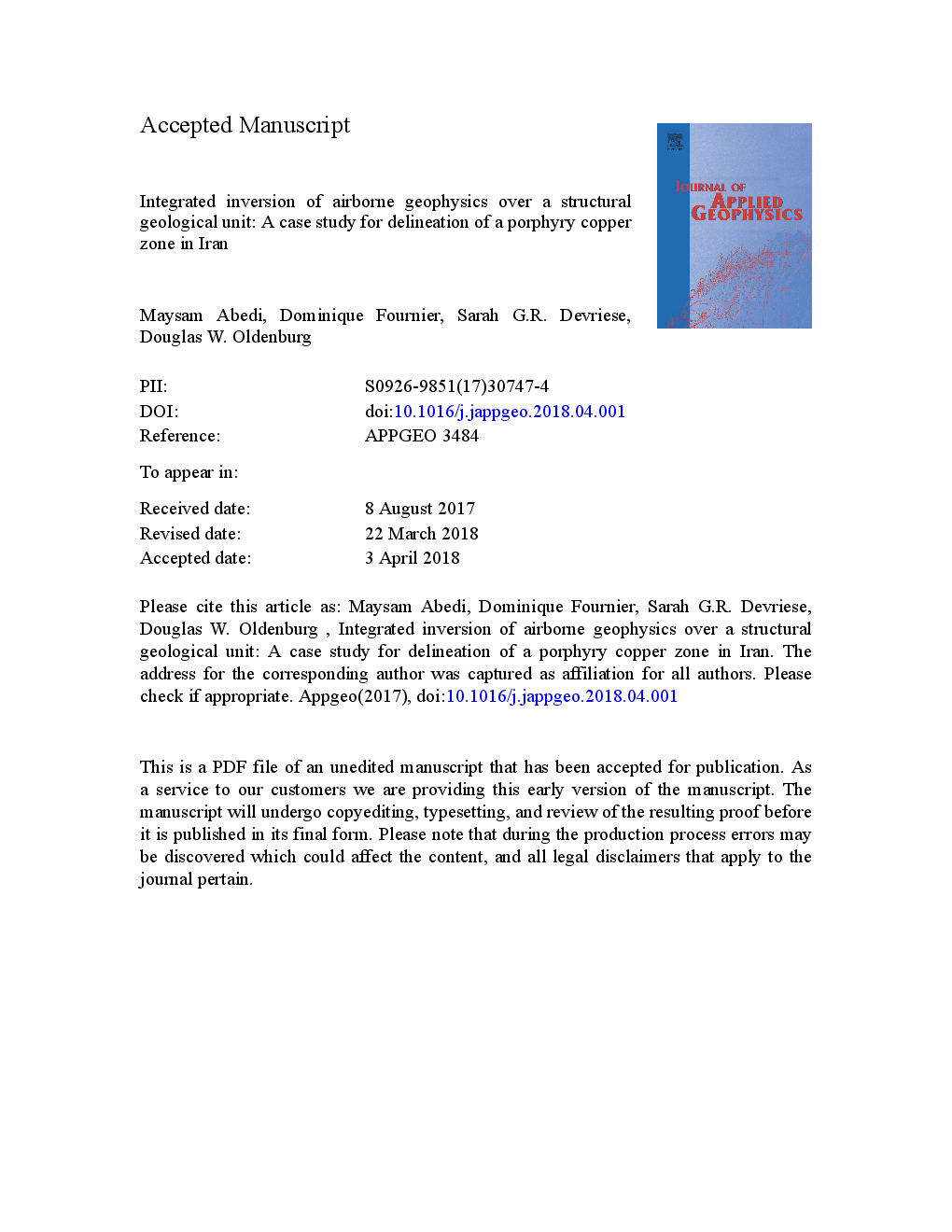ترجمه فارسی عنوان مقاله
جابجایی مجتمع ژئوفیزیک هوایی بر یک واحد زمین شناسی ساختاری: مطالعه موردی برای تعریف یک منطقه مس پورفیری در ایران
عنوان انگلیسی
Integrated inversion of airborne geophysics over a structural geological unit: A case study for delineation of a porphyry copper zone in Iran
| کد مقاله | سال انتشار | تعداد صفحات مقاله انگلیسی |
|---|---|---|
| 142567 | 2018 | 41 صفحه PDF |
منبع

Publisher : Elsevier - Science Direct (الزویر - ساینس دایرکت)
Journal : Journal of Applied Geophysics, Volume 152, May 2018, Pages 188-202
ترجمه کلمات کلیدی
الکترومغناطیسی مغناطیسی، اینورتر، هدایت، حساسیت، آندزیت، واحد پورفیری،
کلمات کلیدی انگلیسی
Electromagnetic; Magnetic; Inversion; Conductivity; Susceptibility; Andesite; Porphyry unit;

